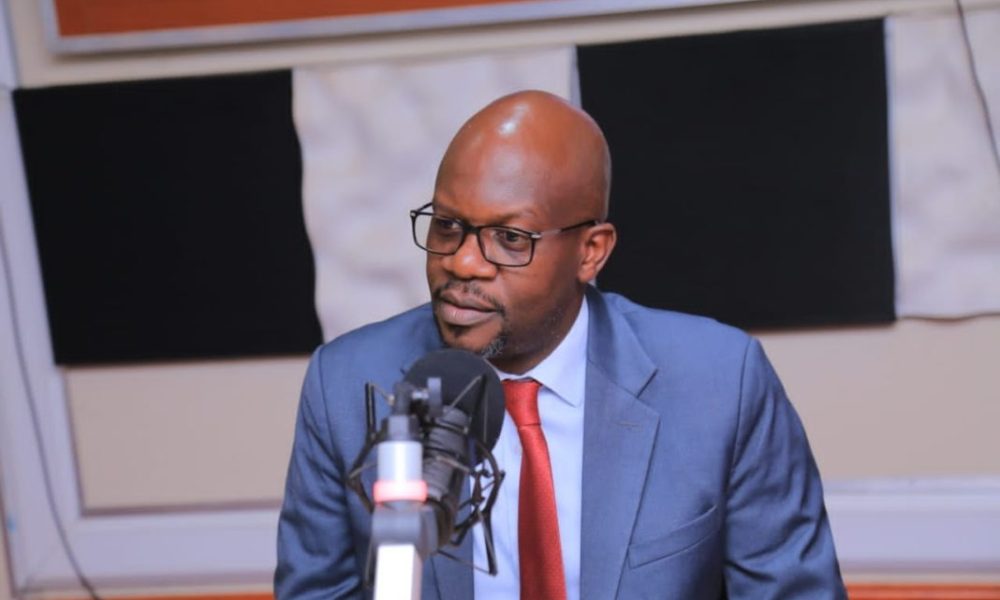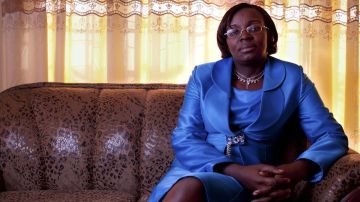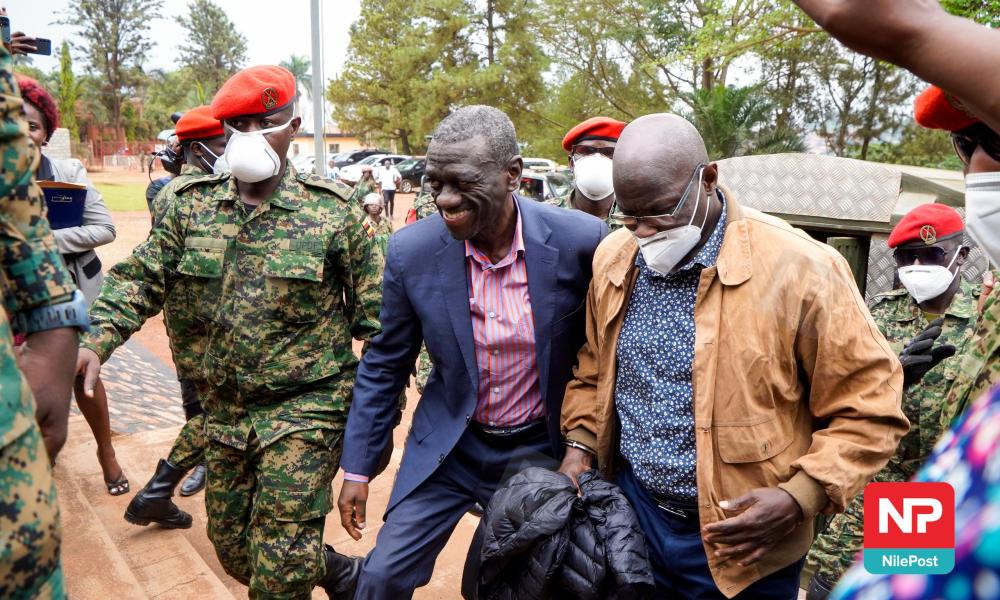
Opposition Rejects Proposals in Parliament Amendment Bill 2024, Citing Threats to Multi-Party Democracy
Uganda’s major opposition political parties have strongly rejected proposals in the Administration of Parliament (Amendment) Bill, 2024, arguing that it undermines multi-party democracy and seeks to destroy the opposition’s influence in Parliament. The bill, moved by Mityana South County Member of Parliament Richard Lumu Kizito, proposes several changes, including the election of the Leader of the Opposition (LoP) and other key positions reserved for the Opposition in Parliament.
The Forum for Democratic Change (FDC), Uganda Peoples’ Congress (UPC), and the Alliance for National Transformation (ANT) presented their opposition to the bill during a meeting with the Legal and Parliamentary Affairs Committee on Thursday, October 10, 2024. They voiced concerns that the bill was crafted in bad faith and posed a significant threat to the effectiveness of opposition parties in Uganda’s political landscape.
Maj. Gen. Mugisha Muntu, President of the Alliance for National Transformation (ANT), cautioned the committee against passing the bill, describing it as a “recipe for disaster.” He warned that electing a Leader of the Opposition different from the one chosen by the largest opposition party would create divisions and weaken the overall opposition movement.
“When you elect the LoP different from the one preferred by the leading party in the Opposition, you are creating two power centers and weakening the party,” Muntu said. He emphasized that political parties should have the autonomy to resolve their internal affairs without external interference from Parliament. “If there are internal challenges within the National Unity Platform, they should be addressed internally as long as the party adheres to principles of good governance. The environment is not even ripe for political parties to thrive, so we should be very cautious with this law,” he added.
Patrick Amuriat, President of the Forum for Democratic Change (FDC), echoed Muntu’s concerns, stating that the bill would exacerbate the already shrinking civic space for the Opposition in Uganda. He argued that the bill is part of a broader effort by the government to curtail political participation and silence opposition voices.
“The bill is seen as part of a broader attempt by the government to stifle political participation. The more you reduce the already limited space for the Opposition to thrive, the more you push them toward seeking alternative means. This is dangerous for both democracy and the stability of the country,” Amuriat warned. He also questioned why Uganda would depart from the best practices of governance commonly used in the Commonwealth, suggesting that the bill goes against established norms.
Fred Ebil, Secretary General of the Uganda Peoples’ Congress (UPC), criticized the timing of the bill, stating that the country should be focused on electoral reforms ahead of the 2026 general elections rather than dividing the opposition. “In his bill, Lumu thinks there will be cohesion within the Opposition, but we believe it will result in more division. Those who lose in the race for LoP will resort to the courts. For the sake of the multi-party system, the appointment of the LoP should remain as it is,” Ebil argued.
Sandra Alum Santa, UPC’s party whip, added that the party with the highest numerical strength should retain the right to select the Leader of the Opposition. She warned that allowing all Opposition MPs to elect the LoP could lead to chaos and division within the Opposition, which is already under pressure from the government. “We want to respect the party with the numerical strength to select the LoP. If you allow an election by all Opposition MPs with multiple contestants, it will create chaos and division. This is not what we want in the Opposition,” Santa said.
On the other hand, Bukooli County MP Solomon Silwany argued in support of Lumu’s bill, noting that some opposition MPs have expressed a need for accountability from the Leader of the Opposition. “Some opposition MPs say they want more accountability from the LoP, and that can be achieved if they participate in his or her election,” Silwany said.
Lumu’s bill proposes that the Leader of the Opposition be elected by all opposition MPs rather than being appointed by the largest opposition party in Parliament, as is currently the practice. He believes this will promote inclusivity within the Opposition, but critics argue it would disadvantage smaller parties and increase tensions.
The bill also seeks to introduce new provisions for removing the Leader of the Opposition from office, require the approval of the Shadow Cabinet by members of opposition parties, and obligate the LoP to consult opposition parties in Parliament when appointing chairpersons and deputy chairpersons of standing committees.
As the debate around the bill continues, opposition parties remain resolute in their belief that its passage would weaken Uganda’s multi-party system and create unnecessary divisions within an already embattled opposition movement.
Related
News
Ugandan Citizen Abducted, Held in Secret Detention for Three Months, Sparks Outrage and Calls for Justice

A disturbing new case of unlawful detention has surfaced, highlighting the ongoing human rights crisis in Uganda. A Ugandan citizen was reportedly abducted and held in a secret facility, known as a “safe house,” for three months, only to be released without charge or explanation. This incident, reported by NTV Uganda, has sparked widespread condemnation and renewed calls for accountability regarding human rights abuses in the country.
While the details surrounding the abduction remain unclear, reports indicate that the individual was taken without due process and held incommunicado—an action that has long been condemned by human rights organizations. The victim’s release, with no charges filed and no clear justification, has angered activists and citizens, who view this as yet another case of egregious abuse of power by the state.
“This is a recurring pattern,” said one human rights activist. “Abductions, secret detentions, and unexplained releases have become all too common in Uganda. These acts violate fundamental human rights and erode public trust in the justice system.”
The use of “safe houses,” unregistered detention facilities reportedly operated by security forces, has been a focal point in numerous allegations of torture and illegal imprisonment. Despite repeated calls from both local and international organizations for their closure and accountability for those involved, little action has been taken to address these violations.
This case underscores the urgent need for reform within Uganda’s security apparatus and greater accountability for human rights abuses. Observers hope that drawing attention to these injustices will spur concrete action to bring those responsible to justice and ensure the protection of basic human rights.
As frustration mounts, calls for both domestic and international pressure to hold the government accountable for such crimes grow louder. “One day, there must be accountability for all these crimes against our people,” stated one social media user, reflecting the sentiments of many Ugandans.
News
NUP Gathering Disrupted: Kyagulanyi Alleges Security Force Harassment and Arrests

National Unity Platform (NUP) President Robert Kyagulanyi has accused Ugandan security forces of using excessive force to disrupt a planned NUP gathering. The allegations were detailed in a statement shared on Twitter, following an event held to honor children of NUP supporters who were killed, disappeared, or detained for their political beliefs.
According to Kyagulanyi, security personnel, under the command of an officer identified as Asiimwe, carried out a preemptive operation early in the morning upon learning of the NUP’s plans. The forces allegedly stormed the premises, arrested workers, and deployed tear gas to disperse those present.
“The criminals under the command of one Asiimwe deployed early morning, arrested our workers, and threw tear gas into our premises. They’ve cordoned off the premises and blocked all people from accessing the place,” Kyagulanyi wrote.
Among those reportedly arrested were Saava Peter, Mudenya Samson, and Turyasingura Samson. Kyagulanyi claimed the detained workers were subjected to beatings and interrogated about their political affiliations, with security operatives labeling them as terrorists.
“These JATT operatives asked the workers who they support politically, branding them terrorists and criminals—their only crime being that they work with us. You can imagine the indignity!” Kyagulanyi lamented.
This incident adds to the growing tension in Uganda’s political climate, where opposition parties frequently accuse the government of stifling dissent. Despite the challenges, Kyagulanyi ended his statement with a message of defiance and optimism, proclaiming, “UGANDA WILL BE FREE.”
NUP Gathering Disrupted: Kyagulanyi Alleges Security Force Harassment and Arrests
News
Sudan Demands Apology from Uganda Over Army Chief Muhoozi Kainerugaba’s Threat to Invade Khartoum

Sudan has demanded an official apology from Uganda over “offensive and dangerous” comments made by the chief of Uganda army staff, who threated to invade Khartoum, the Sudan Tribune has reported.
General Muhoozi Kainerugaba, son of Ugandan President Yoweri Museveni and CDF of the Ugandan army, posted two comments on the X platform on Tuesday in which he threatened “to capture Khartoum” with the support of the US President elect Donald Trump after he takes office. The posts were deleted later.
“The government of Sudan demands and official apology from the Ugandan government for the offensive and dangerous comments of the army commander,” Sudan’s foreign ministry said in a statement that the Sudan Tribune said it has seen.
Sudan Demands Apology from Uganda Over Army Chief Muhoozi Kainerugaba’s Threat to Invade Khartoum








